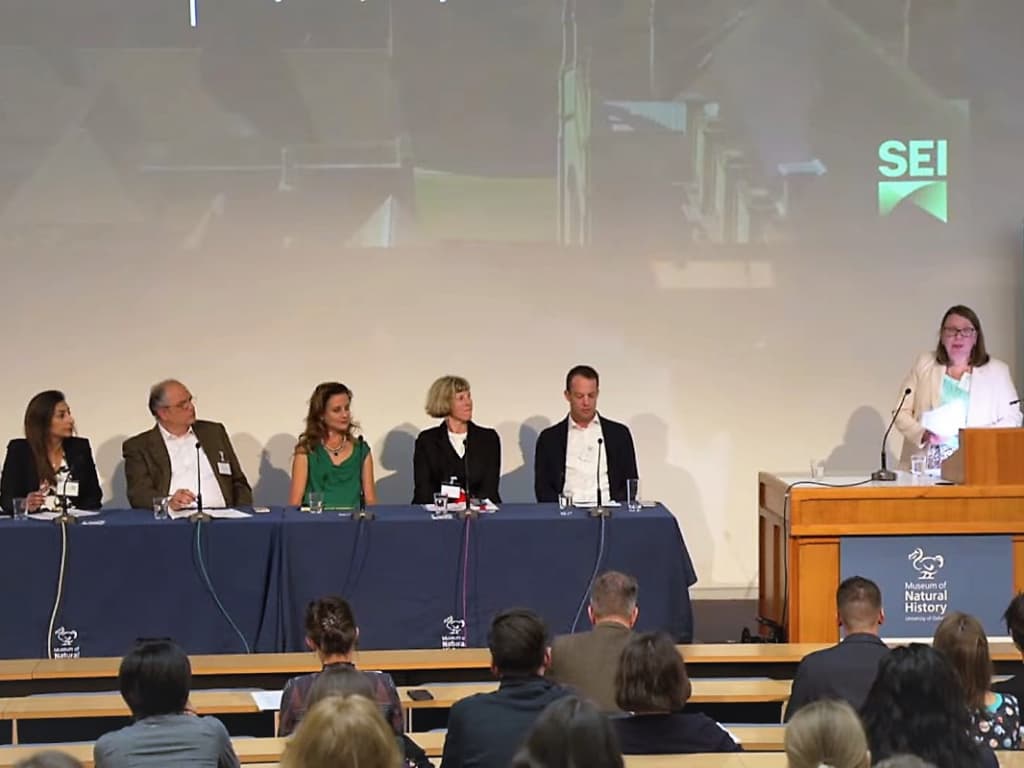The Future of Adaptation – SEI Oxford 20th anniversary event

A Stockholm Environment Institute (SEI) Oxford 20th anniversary event: “The Future of Adaptation” was held in Oxford on September 29, 2022, featuring NbSI Director Prof Nathalie Seddon.
To mark the 20th anniversary of SEI Oxford, an international non-profit research and policy organization that tackles environment and development challenges, and the 15th anniversary of the climate change adaptation platform and network weADAPT, the event celebrated leading innovation in adaptation research and practice, and set the stage for new work.
The event also brought those involved in climate adaptation work together to create and strengthen networks to help set the adaptation agenda for the upcoming COP27 – and beyond. The event featured diverse and leading voices in adaptation from around the world including:
- Nathalie Seddon – Director of the Nature-based Solutions Initiative; Professor of Biodiversity and Senior Associate, International Institute for Environment and Development, University of Oxford; Senior Fellow, the Oxford Martin School.
- Youssef Nassef – Director of the UNFCCC Adaptation Division.
- Arame Tall – Senior Adaptation and Resilience Specialist, Climate Change Group, World Bank.
- Lisa Schipper – (Incoming) Professor of Development Geography, University of Bonn; SEI Associate.
- George Carew-Jones – UN COP Working Group Member and Press Officer, UK Youth Climate Coalition.
- Sukaina Bharwani – Senior Research Fellow, SEI Oxford.
- Magnus Benzie – Research Fellow, SEI Stockholm.
- Richard J.T. Klein – SEI Senior Research Fellow and Professor of Geography, Climate Policy and Development at Linköping University.
Prof Seddon highlighted the need for rapid scaling up of place-based, holistic approaches to tackling the impacts of climate change. In this case, the holistic approach means three key approaches that can be framed as adaptation goals. These include:
- not just reducing exposure, but also sensitivity, and building adaptive capacity.
- ensuring that adaptation programmes tackle multiple societal challenges simultaneously, beyond adaptation to also include mitigation of climate change, biodiversity loss, and poverty, which means such interventions are then more likely to be sustained.
- Focusing on who benefits and ensuring equitable distribution of those benefits.
Seddon emphasized the need to scale up nature-based solutions (NbS) in order to reach adaptation goals. Technology is useful, but is not ready to scale, whereas NbS is ready to scale and has been used by indigenous and local communities for millennia. NbS are scalable and flexible, and enable ecosystem to evolve and adapt under climate change. There is growing evidence of high benefit to cost ratios of NbS, and nature, technology and behavioural solutions must work together to achieve adaptation goals.
Seddon also highlighted barriers to implementation. A critical barrier is limited access to information on what works and doesn’t work on interventions in the landscape, both in terms of financing, and of effectiveness, due to problems accessing relevant information, and sharing best practice. Another barrier is the issues of ensuring research and practice insights reach siloed governance and policy structures, while a third barrier is insufficient finance and issues around ensuring the right types of finance goes to the right approaches that benefit local communities.
Watch the Future of Adaptation event recording online on the SEI Youtube channel




